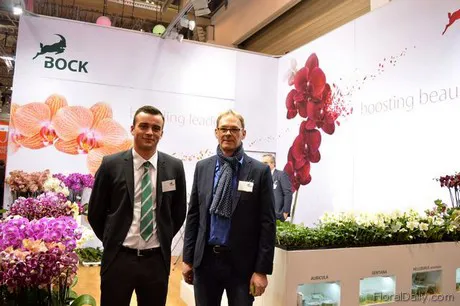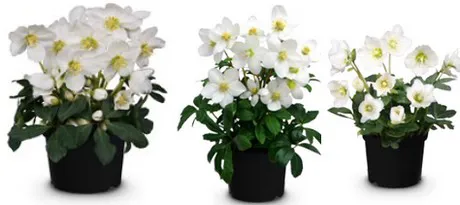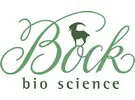
Friedrich von Freymann and Antoine Hoogenboom at the IPM Essen.
Seedlings vs tissue culture
According to Sales Manager Antoine Hoogenboom of Bock Bio Science, a German phalaenopsis and hellebore breeder, the reason for the oversupply last year is probably the fact that many growers cultivate their hellebore from seedlings. "Hellebore from seedlings usually start flowering not much before the end of November provided beneficial weather conditions, meaning enough cold nights as of end of August/September in order to induce flowering. This September, however, showed temperatures like in summer leading to the fact that the seedling plants did not come into flower on time which resulted in too less plants in November and the first December week and an oversupply of plants after that date. And as these plants are often not homogeneous in growth the grower cannot plan his crop properly. Therefore, you might end up with many hellebore from different growers flowering at the same time. And this Christmas, it led to an oversupply on the auction market", explains Hoogenboom.
The hellebore that flowered earlier in the season received higher prices at the auction last Christmas. According to Hoogenboom, most of these varieties were probably grown from tissue culture. "Next to early flowering, the hellebore that are grown from tissue culture are also more homogeneous, powerful in growth and blooming, which enables the grower to better plan the flowering period of his crop and to sell a higher quality."
Bock breeds hellebore and supplies their young plants in vitro and as pottable young plants in 60-holes trays; they notice an increase in demand for these varieties over the last years. "Even though these young plants are a bit more expensive than seedlings, growers value this possibility to plan the crop and therefore often receive higher prices. On top of that, our varieties grow quite fast; they have a cultivation time of 6-9 months."
More than a Christmas rose
The hellebore is commonly called the Christmas rose, but it has become a trendy garden plant over the last years. "So after Christmas, more growers should continue putting the hellebore on the market. They only need to change the POS material. like the labels and so on", says Hoogenboom.

St. Lucia, St. Antonia and St. Martin.
And next to the traditional white varieties, more colors are being put on the market, which seemed to be well received by the end consumer. "Pink, red and dark red and such colors are increasing in demand. But without a doubt, the whites are still the most popular. For the 2017 season, for example, our St. Lucia, St. Antonia and St. Martin are already in high demand."
Bock Bio Science
Bock Bio Science is a fourth-generation family business in Germany with its own tissue culture laboratory and nursery in Bremen. For decades, they breed and propagate orchids, perennials, ornamental grasses, woody plants and agricultural crops. They offer their young plants in vitro (TC) or ex nursery to growers all over the world.
For more information

Bock Bio Science
Antoine Hoogenboom
Email: antoine@breedingleaders.com
www.breedingleaders.com
